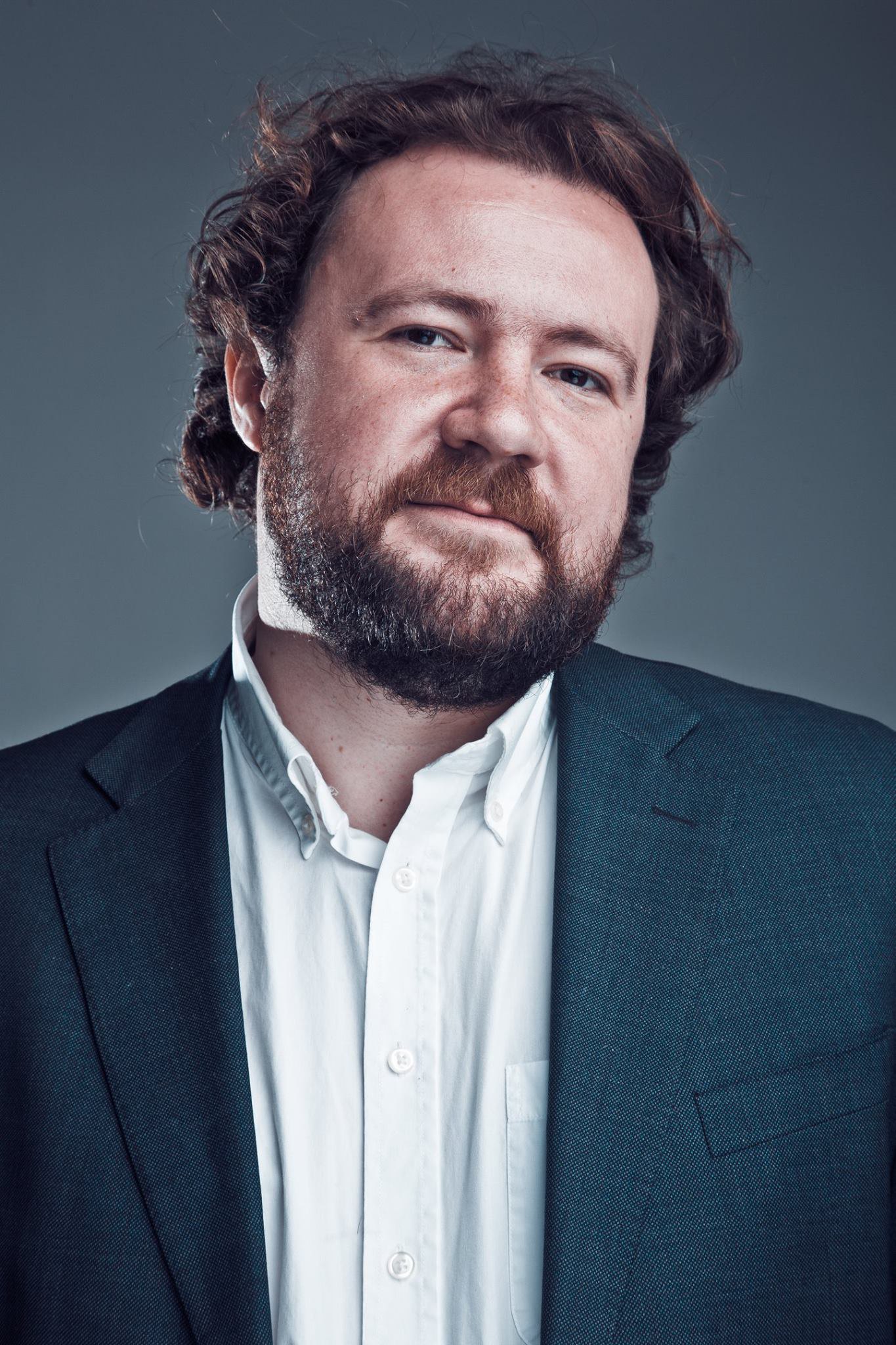
What has changed is that the government has started talking less about reconstruction. We already have so many destroyed facilities, such a tiny percentage of restoration and so many corruption investigations that the government probably decided not to talk about it at all.
Another significant change is that the government got slapped from the European Commission for 5655 (the scandalous urban planning bill passed by the Rada, which, in the opinion of the community, lobbies for the interests of developers - LB.ua). And many people were encouraged by the West's reaction.
As for local self-government, I think the position of the central government has not changed: there is still a belief that there are either thieves or idiots on the ground, so they should not be given either budgets or powers, because no one knows how to do anything, so it is better that they do everything themselves. Hence, these big gifts in the form of the Big Construction and Big Restoration programmes to win elections without compromise.
And voters still have a habit of thinking in terms of big businessmen: "These guys are doing something". And the requirements for urban planning are still low.
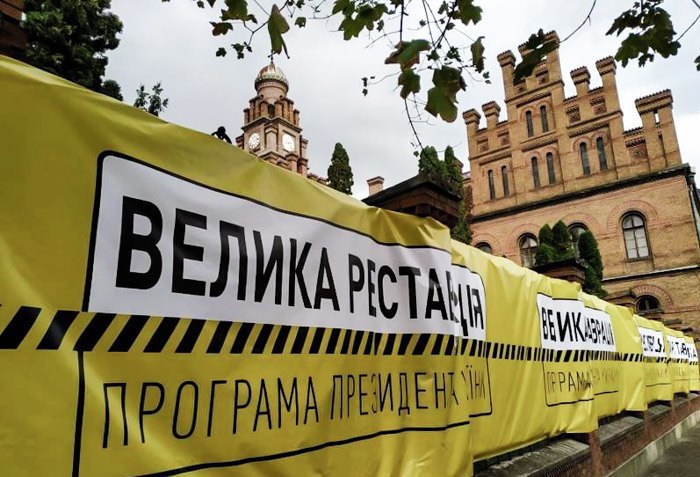
Because there are no roads everywhere, and it is enough to pave one street to make everyone happy.
In the West, this reaction ("at least something is being done" - LB.ua) is unheard of, people there are already talking about the quality of what has been done. They organise long discussions and referendums.
In Ukraine, unfortunately, there is no such culture of discussion. Our culture is very emotional, mostly with accusations. Everyone has their own views and interests. But this does not mean that this culture does not need to be nurtured.
How does it work in European cities?
The EU's policy is to empower cities, to give them the tools of transparent tenders, to decentralise countries as much as possible, to deregulate every sphere. Give cities planning tools so that they learn how to do it.
Instead, we have a strong businessman from Kyiv coming to the conventional Cherkasy and saying: "You know nothing, I'll decide instead."
So, our society has chosen some values, and the government continues to promote others?
The authorities may not even realise that this is a Soviet approach.
Over the course of my career, I have realised that architecture and planning are not about concrete, beauty and structures. It is about agreements in general.
When a city builds something, it should symbolise an agreement. Not as activists say: "Do something about traffic jams," and the planner, instead of investing in a subway or tram, invests in a car bridge, which only increases the number of cars and traffic jams.
Let's take Kharkiv. The mayor says that Norman Foster, who has built half of London and half of the world, will design there, and at the same time, he is cutting out the tram and widening the road.
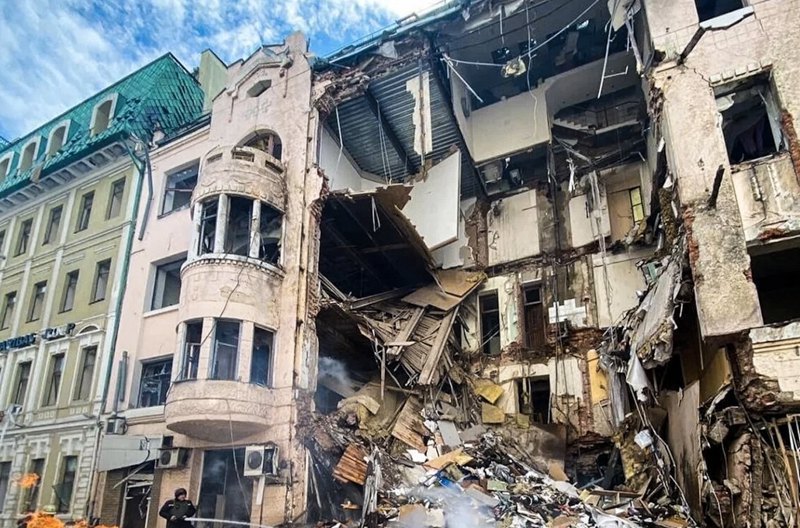
Does the government not want to negotiate?
But, in fact, from our experience, we cannot objectively count on the government to invite different parties, to be a true moderator of the discussion and to hear everyone.
For example, the story of the Union of Architects regarding draft law 5655. They went to meetings, worked, proofread changes, ran around those committees, and in the end they just felt that they were being ridiculed and given other versions of the texts.
Representatives of the ministry and the authors of the bill never took a picture with the Union at the table or wrote a post on Facebook saying that they had a positive meeting with players in the architecture and urban planning market. Instead, Deputy Minister Kozlovska and Olena Shulyak had a dozen meetings with the Confederation of Builders of Ukraine. That is, they are the most respected people for the authorities.
And the government responds to the protests of the Union of Architects with SBU inspections and out-of-court bribery charges.
By the way, here's another thing that has happened in the past year: in recent months, we have received a wave of protests in all cities, saying, stop paving the cobbles over, everything must go to the Armed Forces.
And, frankly, I don't want to talk about urbanism anymore, because I understand that this is not really urgent right now.
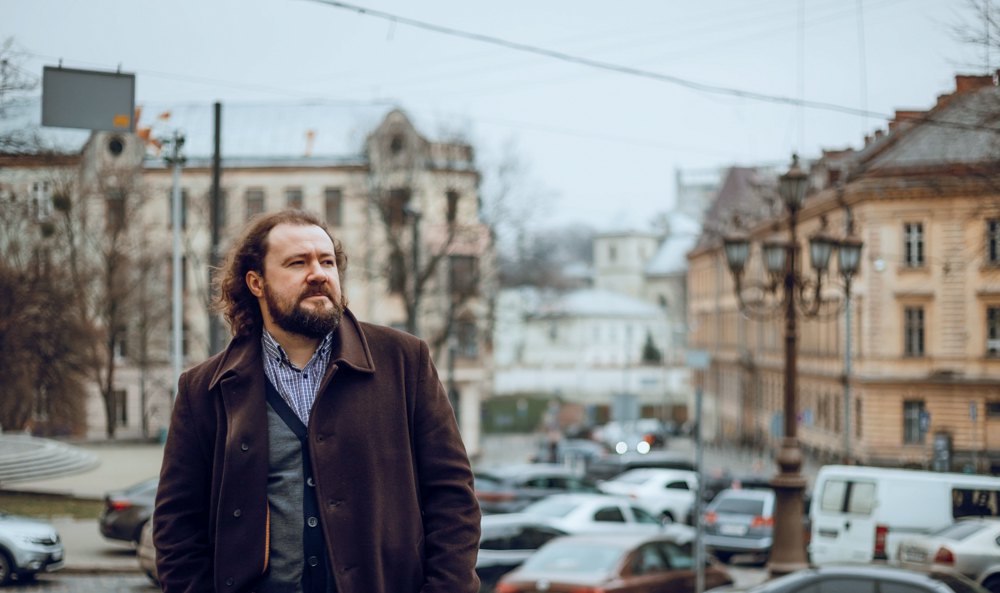
That's why I'm a little sceptical compared to last year. There is no excitement in telling people how beautifully Dresden and Warsaw have been rebuilt, and I don't want to entertain people, because no one knows what that rebuilding will look like.
Obviously, laying paving stones is not the most important task. But what priorities do you think rear cities should have now?
Planning. No one is stopping us from thinking about the future of the city, its strategy, and what should be the pillars of its spatial and economic development. This doesn’t cost much.
Under current conditions, Dnipro, for example, could be the scientific and technical capital of Ukraine, accumulating the brains of engineers working on the development of drones and rockets.
The situation is worse with Kharkiv. Kharkiv was a city on the border, a city of trade, an educational centre for the East. No one understands what Kharkiv can offer today, because it all depends on what will happen to the border and what kind of relations we will have with Russia in the next 10-20 years.
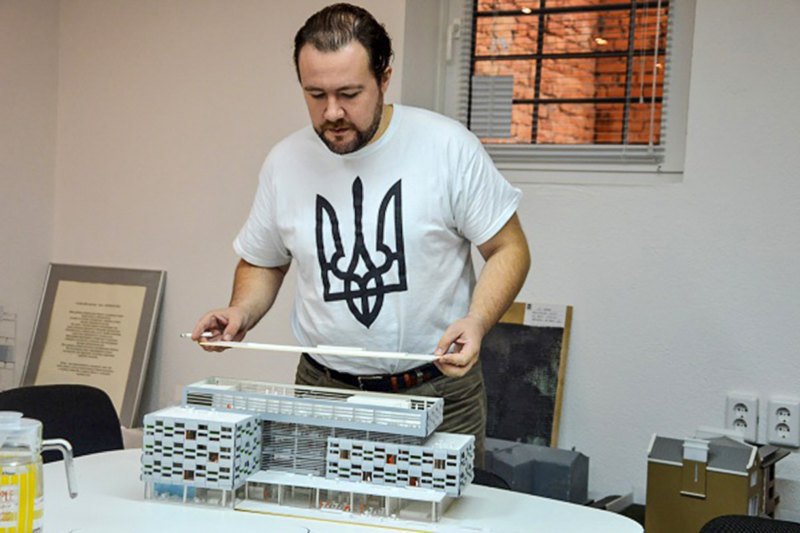
But we can think of different scenarios.
What is the situation with specialists in Ukraine? Are there enough domestic specialists to rebuild?
I can say for sure that it is not enough. Our company conducts five to eight interviews every week, and we cannot find enough people. A lot of guys are in the service, young people are completely green, students cannot produce high-quality documentation, even though we hire and train them.
Among the youth, there are those who go abroad. And not only among young people - I know a dozen colleagues of my age who went abroad to study before the full-scale invasion, and none of them returned. They tried out projects there, felt what a participatory approach is, a culture of communication where an architect is not called a servant of a developer, where there is copyright, which they want to take away here. And they are enjoying themselves.
So we are already experiencing a staff shortage catastrophe, and we haven't even started to rebuild anything yet. And we need to understand who we will be building it for.
The government must think and offer some macroeconomic miracles to make people come back.
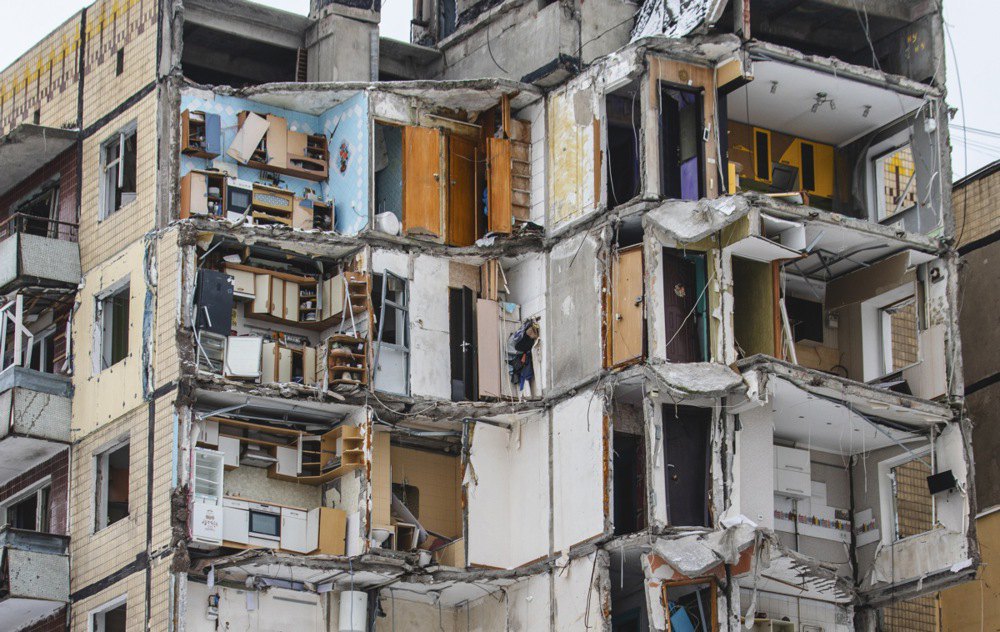
Instead, they say: "Let's build 10,000 apartments, and people will come to us." What kind of city, arrangement, country will it be? Maybe you can outline taxes, free economic zones, and finally build municipal housing?
How does it work?
Well, for example, the city of Chortkiv, Ternopil Region. It has a castle, architectural monuments in the city centre, a river, a beautiful landscape. And the mayor is young, very enthusiastic. When they were accepting IDPs, he left a few rooms in the dormitories for the specialists he lacked: an architect, a land surveyor. Luckily for him, an architect from Donetsk Region arrived, he settled her in that room for free and immediately gave her an official job.
Cities like Vienna have municipal housing, even in the most elite buildings, in the city centre, and they settle prominent conductors, teachers, professors there because they want to have these professionals and can afford to live in the centre of Vienna. They are thinking about the population programme.
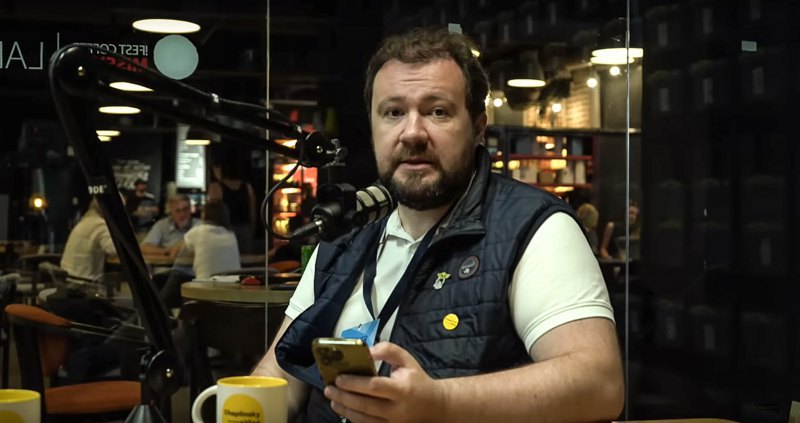
Any planning should be done on a geodetic basis. To do this, we need to fly over the country with high-powered drones and take digital land surveys. But because of the war, we cannot fly. And where we can, there is no money in the budget.
Other data that is closed is urban planning monitoring. In Lviv, for example, there was a very cool thing called the urban planning portal, which was a digital map showing all zones, plans, and everything that had been approved by the city council. It even showed the distribution of the budget across the city: which projects in which district and how much was spent. This is primarily a control tool.
It is also the data used to issue urban planning conditions. An investor who wants to buy a plot has to go to the map, where he or she will be given all the urban planning conditions and restrictions that apply to him or her. And the number of these conditions and restrictions should be set by the city, not the Ministry of Regional Development.
It can be a city where they say: build whatever you want, we have no restrictions. Or it may be a UNESCO city, and then it may have 120 layers of restrictions: from architectural monuments, height, to roof colour and fence height. That is, as much as we program and agree with the community, so much will be.
Meanwhile, the Ministry of Regional Development says that this is a big drag on businessmen and developers, as local councils impose a lot of conditions.
So here again, we come back to the fact that decentralisation and deregulation of all processes are important.
Another important topic today is memorials in Ukraine. The burial of fallen soldiers is one of the most pressing issues. Their families have to literally fight for a decent commemoration at the state level. For example, there is a sad story of the construction of the National Military Cemetery or alleys of glory in the capital's cemeteries, which are in no hurry to build. In addition, if a memorial project is important in Ukraine, it is followed by controversy or scandal. Let's even take the story of the Babyn Yar Holocaust Memorial Centre. Why do you think it's such a big problem here?

As an architect, I understand that the best architectural solutions are born later - 5-10-15 years after a historical event, when there is a historical assessment, when new generations have grown up and are passing that information through themselves. And then some kind of architectural competition is held in a quiet mode.
And from tragedy to tragedy, we don't have time to let it pass through us. We have not yet finished the Holodomor Museum. It will soon be 100 years, and we have this and that.
I remember the first wave when we organised a competition for the Heavenly Hundred memorial in Lviv. I had a political fiasco, because at first I had very long conversations with the families of the victims. People are suffering, they have been under a lot of stress, they don't need these long conversations, they want to express their pain in any form. And when you explain in complicated language that the place and design are important, they listen to you and say: "You are a thief, you doesn’t lift a finger here, and my son died on the Maidan."
It's the same fiasco with the memorial to the Heavenly Hundred in Kyiv. We still don't have it. Two competitions were held, there were two different winners, and as a result, the prosecutor's office said that they had not yet closed the crime scene and could not implement the project.

And then there is the war, new victims. And imagine the number of suffering people today. And then there's the bad news, the corruption scandals, and if you add to that "let's have an international competition for the memorial", I think that will be the last thing that person says.
The official starts to think: "Oh my God, let's do something as soon as possible and turn the page."
Instead, politicians have to withstand the pressure and give people the opportunity to let off steam, to stretch the story over time and do the right thing step by step. Because the conceptual thing that will help show the world our tragedy is not born when a mayor comes and says: "That's it, I've decided, there will be an angel." The cross was quickly moulded and cast, the ribbon cut, and the page turned.
I don't have a recipe. My recipe is to talk to people. Politicians should take responsibility and just hold dozens of meetings, look these families in the eye, sympathise with them sincerely, go through their pain with them, talk and talk and come up with something. To make people feel that they are being taken care of. Because when it's a political decision, when it's quick and when it's done anyhow, it ends up like this - with scandal, dissatisfaction and bad architecture.








